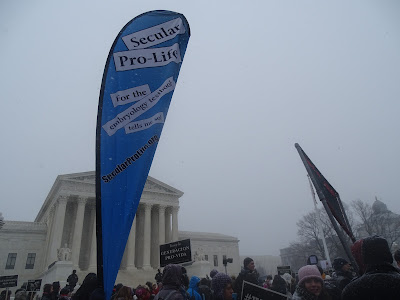Lessons from the Aché people
 I recently read Sapiens: A Brief History of Humankind by Yuval Noah Harari, and I realize I’m a few years late to the party, but I cannot recommend it highly enough. It was a best-seller for a reason. It is hugely ambitious, covering everything from hunting and gathering to modern nation-states to the potential technologically enhanced future of our species, gleaning insights from cultures all around the globe.
I recently read Sapiens: A Brief History of Humankind by Yuval Noah Harari, and I realize I’m a few years late to the party, but I cannot recommend it highly enough. It was a best-seller for a reason. It is hugely ambitious, covering everything from hunting and gathering to modern nation-states to the potential technologically enhanced future of our species, gleaning insights from cultures all around the globe.
And as so often happens when I read for pleasure to try to take a break from pro-life advocacy, Sapiens contains a passage directly relevant to the abortion debate. Allow me to share it with you (emphasis added):
The Aché people, hunter-gatherers who lived in the jungles of Paraguay until the 1960s, offer a glimpse into the darker side of foraging. When a valued band member died, the Aché customarily killed a little girl and buried the two together. Anthropologists who interviewed the Aché recorded a case in which a middle-aged man who fell sick and was unable to keep up with the others. He was left under a tree. Vultures perched above him, expecting a hearty meal. But the man recuperated, and, walking briskly, he managed to rejoin the band. His body was covered with the birds’ faeces, so he was henceforth nicknamed ‘Vulture Droppings’.
When an old Aché woman became a burden to the rest of the band, one of the younger men would sneak behind her and kill her with an axe-blow to the head. An Aché man told the inquisitive anthropologists stories of his prime years in the jungle. ‘I customarily killed old women. I used to kill my aunts . . . The women were afraid of me . . . Now, here with the whites, I have become weak.’ Babies born without hair, who were considered underdeveloped, were killed immediately. One woman recalled that her first baby girl was killed because the men did not want another girl. On another occasion a man killed a small boy because he was ‘in a bad mood and crying’. Another child was buried alive because ‘it was funny-looking and the other children laughed at it’.
We should be careful, though, not to judge the Aché too quickly. Anthropologists who lived with them for years report that violence between adults was very rare. Both women and men were free to change partners at will. They smiled and laughed constantly, had no leadership hierarchy, and generally shunned domineering people. They were extremely generous with their few possessions, and were not obsessed with success or wealth. The things they valued most in life were good social interactions and high-quality friendships. They viewed the killing of children, sick people and the elderly as many people today view abortion and euthanasia. It should also be noted that the Aché were hunted and killed without mercy by Paraguayan farmers. The need to evade their enemies probably caused the Aché to adopt an extremely harsh attitude towards anyone who might become a liability to the band.
Every society has its own structures of oppression and violence. It’s easy to judge the Aché for killing “underdeveloped” and female newborns. But how can we claim our society is morally superior, when we allow the killing of disabled and female offspring just a few months earlier? Dr. Harari’s comparison to modern attitudes about abortion and euthanasia is meant to excuse the Aché, but it can just as easily be read as an indictment of today’s abortion advocates.



Leave a Reply
Want to join the discussion?Feel free to contribute!